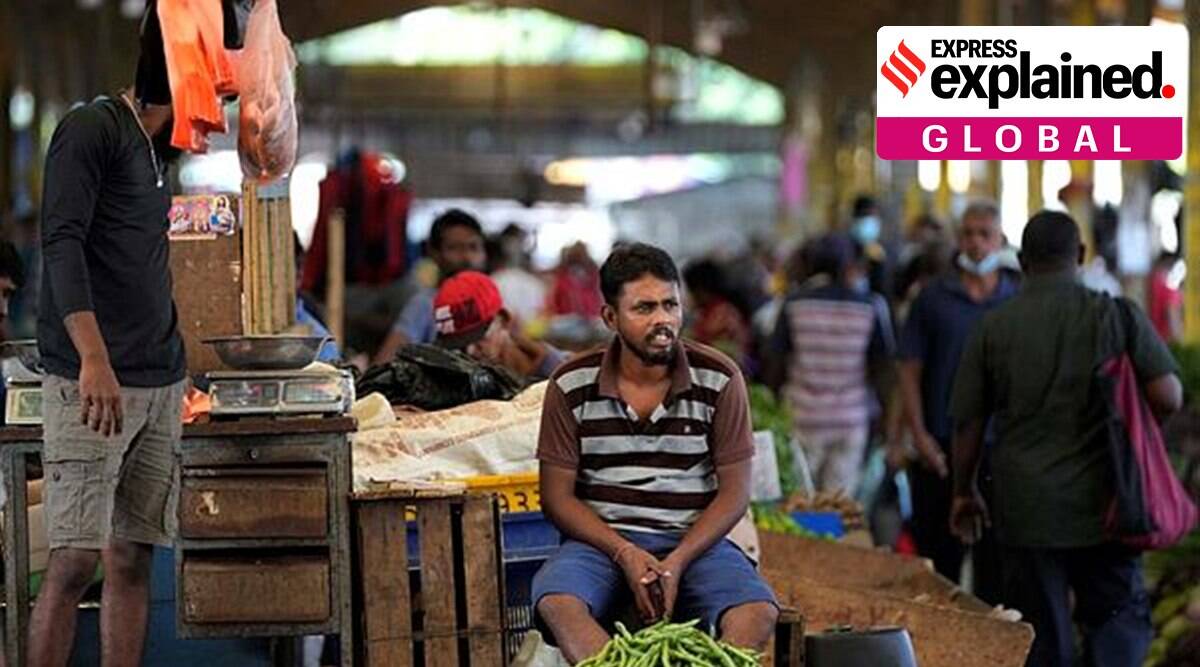Description

Copyright infringement not intended
Context: The International Monetary Fund (IMF) on Thursday approved a loan of $2.9 billion to Sri Lanka,. The island country, which is battling its worst economic crisis since independence in 1948, witnessed widespread protests earlier this year that forced Gotabaya Rajapaksa to resign as President, and brought Ranil Wickremesinghe to power.
Details:
- The agreement between Sri Lanka and the IMF is only preliminary, and has to be approved by the IMF management and its executive board.
- It will also go through only if Sri Lankan authorities carry out previously agreed measures.
- The funds will be disbursed over four years to help stabilise the economy and boost growth.
- The package will help raise government revenue to support fiscal consolidation, introduce new pricing for fuel and electricity, hike social spending, bolster central bank autonomy and rebuild depleted foreign reserves.
- The IMF said “The programme aims to reach a primary surplus of 2.3 per cent of GDP by 2024.”
- Sri Lanka owes more than $51 billion in foreign debt, of which $28 billion has to be repaid by 2028.
- According to the IMF, the country’s economy will shrink by 8.7 per cent in 2022 while inflation rises to above 60 per cent.
- Economists say the crisis stems from domestic factors such as years of mismanagement and corruption.
- Conditions have been deteriorating for the past several years. In 2019, Easter suicide bombings at churches and hotels killed more than 260 people. That devastated tourism, a key source of foreign exchange.
History of IMF
- The IMF, also known as the Fund, was conceived at a UN conference in Bretton Woods, New Hampshire, United States, in July 1944.
- Countries were not eligible for membership in the International Bank for Reconstruction and Development (IBRD) unless they were members of the IMF.
- IMF, as per Bretton Woods agreement to encourage international financial cooperation, introduced a system of convertible currencies at fixed exchange rates, and replaced gold with the U.S. dollar (gold at $35 per ounce) for official reserve.
Role of IMF
- IMF focuses on fostering global monetary cooperation, securing financial stability, facilitating and promoting international trade, employment, and economic growth around the world.
- The IMF is a specialized agency of the United Nations.

Functions of IMF
- Regulatory functions: IMF functions as a regulatory body and as per the rules of the Articles of Agreement, it also focuses on administering a code of conduct for exchange rate policies and restrictions on payments for current account transactions.
- Financial functions: IMF provides financial support and resources to the member countries to meet short term and medium term Balance of Payments (BOP) disequilibrium.
- Consultative functions:IMF is a center for international cooperation for the member countries. It also acts as a source of counsel and technical assistance.
IMF Quota
- IMF funds come from two major sources – Quota and Loans.
- Quotas which are pooled funds of member nations, generate most IMF funds.
- The size of a member’s quota depends on its economic and financial importance in the world.
- Nations with larger economic importance have larger quotas.
- The quotas are increased periodically as a means of boosting the IMF resources in the form of Special Drawing Rights.
Organization structure of IMF
|
Structure of the International Monetary Fund (IMF)
|
|
Governing Bodies of IMF
|
Roles and Responsibilities
|
|
Board of Governors
|
· Each governor of the Board of Governors is appointed by his/her respective member country.
· Elects or appoints executive directors to the Executive Board.
· Board of Governors is advised by the International Monetary and Financial Committee (IMFC) and the Development Committee.
· An annual meet up between the Board of Governors and the World Bank Group is conducted during the IMF–World Bank Annual Meetings to discuss the work of their respective institutions.
|
|
Ministerial Committees
1. International Monetary and Financial Committee (IMFC)
2. Development Committee
|
· It manages the international monetary and financial system.
· Amendment of the Articles of Agreement.
· To solve the issues in the developing countries that are related to economic development.
|
|
Executive Board
|
· It is a 24-member board that discusses all the aspects of the Funds.
· The Board normally makes decisions based on consensus, but sometimes formal votes are taken.
|
Reports Published
- Global Financial Stability Report
- World Economic Outlook: it is usually published twice a year in the months of April and October.
- Fiscal Monitor (FM)
https://indianexpress.com/article/explained/explained-global/imf-sri-lanka-economic-crisis-aid-explained-8124961/















